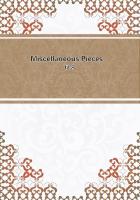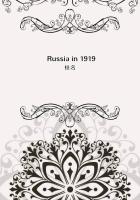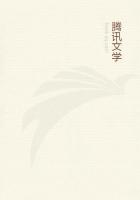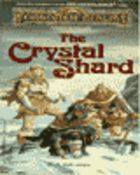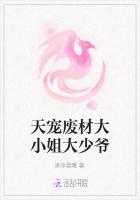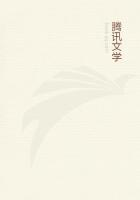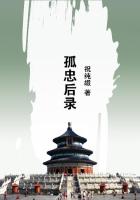Organic molecules everywhere diffused or everywhere growing, species of globules constantly in course of decay and restoration, which, through the blind and spontaneous development, transform themselves, multiply and combine, and which, without either foreign direction or any preconceived end, solely through the effect of their structure and surroundings, unite together to form those masterly organisms which we call plants and animals : in the beginning, the simplest forms, and next a slow, gradual, complex and perfected organization ; the organ created through habits, necessity and surrounding medium; heredity transmitting acquired modifications,[5] all denoting in advance, in a state of conjecture and approximation, the cellular theory of later physiologists[6] and the conclusions of Darwin.[7] In the picture which the human mind draws of nature, the general outline is marked by the science of the eighteenth century, the arrangement of its plan and of the principal masses being so correctly marked, that to day the leading lines remain intact. With the exception of a few partial corrections we have nothing to efface.
This vast supply of positive or probable facts, either demonstrated or anticipated, furnishes food, substance and impulse to the intellect of the eighteenth century. Consider the leaders of public opinion, the promoters of the new philosophy: they are all, in various degrees, versed in the physical and natural sciences. Not only are they familiar with theories and authorities, but again they have a personal knowledge of facts and things. Voltaire[8] is among the first to explain the optical and astronomical theories of Newton, and again to make calculations, observations and experiments of his own. He writes memoirs for the Academy of Sciences "On the Measure of Motive Forces,"and "On the Nature and Diffusion of Heat." He handles Réamur's thermometer, Newton's prism, and Muschenbrock's pyrometer. In his laboratory at Cirey he has all the known apparatus for physics and chemistry. He experiments with his own hand on the reflection of light in space, on the increase of weight in calcified metals, on the renewal of amputated parts of animals, and in the spirit of a true savant, persistently, with constant repetitions, even to the beheading of forty snails and slugs, to verify an assertion made by Spallanzani.
- The same curiosity and the same preparation prevails with all imbued with the same spirit. In the other camp, among the Cartesians, about to disappear, Fontenelle is an excellent mathematician, the competent biographer of all eminent men of science, the official secretary and true representative of the Academy of Sciences. In other places, in the Academy of Bordeaux, Montesquieu reads discourses on the mechanism of the echo, and on the use of the renal glands; he dissects frogs, tests the effect of heat and cold on animated tissues, and publishes observations on plants and insects. - Rousseau, the least instructed of all, attends the lectures of the chemist Rouelle, botanizing and appropriating to himself all the elements of human knowledge with which to write his "Emile." - Diderot taught mathematics and devoured every science and art even to the technical processes of all industries. D'Alembert stands in the first rank of mathematicians. Buffon translated Newton's theory of flux, and the Vegetable Statics of Hales; he is in turn a metallurgist, optician, geographer, geologist and, last of all, an anatomist. Condillac, to explain the use of signs and the relation of ideas, writes abridgments of arithmetic, algebra, mechanics and astronomy.[9] Maupertuis, Condorcet and Lalande are mathematicians, physicists and astronomers;d'Holbach, Lamettrie and Cabanis are chemists, naturalists physiologists and physicians. - Prophets of a superior or inferior kind, masters or pupils, specialists or simple amateurs, all draw directly or indirectly from the living source that has just burst forth. This is their basis when they begin to teach about Man, what he is, from whence he came, where he is going, what he may become and what he should be. A new point of departure leads to new points of view; so that the idea, which was then entertained of the human being will become completely transformed.
II. SCIENCE DETACHED FROM THEOLOGY.
Change of the point of view in the science of man. - It is detached from theology and is united with the natural sciences.
Let us suppose a mind thoroughly imbued with these new truths, to be placed on the orbit of Saturn, and let him observe[10]. Amidst this vast and overwhelming space and in these boundless solar archipelagoes, how small is our own sphere, and the earth, what a grain of sand! What multitudes of worlds beyond our own, and, if life exists in them, what combinations are possible other than those of which we are the result! What is life, what is organic substance in the monstrous universe but an indifferent mass, a passing accident, the corruption of a few epidermic particles? And if this be life, what is that humanity which is so small a fragment of it? - Such is Man in nature, an atom, and an ephemeral particle; let this not be lost sight of in our theories concerning his origin, his importance, and his destiny.
"A mite that would consider itself as the center of all things would be grotesque, and therefore it is essential that an insect almost infinitely small should not show conceit almost infinitely great."[11] -How slow has been the evolution of the globe itself! What myriads of ages between the first cooling of its mass and the beginnings of life![12] Of what consequence is the turmoil of our ant-hill compared to the geological tragedy in which we have born no part, the strife between fire and water, the thickening of the earth's crust, formation of the universal sea, the construction and separation of continents!

